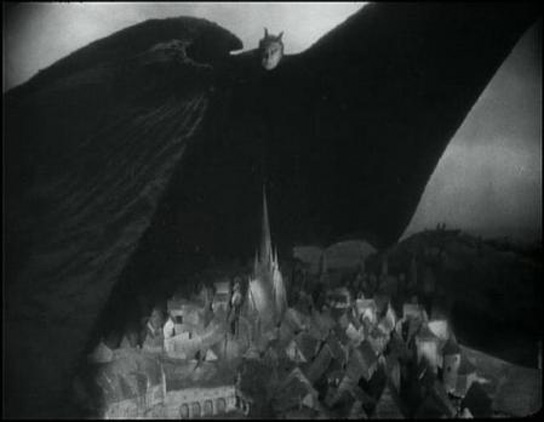A couple years ago I was asked to look after small child who was at a stage in his mental development where he would repetitively ask “why?” to any answer he was given. He was probably three—young enough that he was unable to use a toilet, yet old enough and in possession of enough self-awareness to be embarrassed about having to let a stranger change his diaper. The way he produced his why was very robotic. He wouldn’t even wait for me to finish my answer to his previous question before asking it again, which makes sense given that whatever my answer, it merely represents a point in a long causal sequence and probably shouldn’t be any more satisfactory than the previous answer I provided or the one I am about to give. Responding to this recursive questioning is an exercise of comprehension and kind of fun. One drives ever deeper into one’s own knowledge of the world, until finally reaching a point of not-knowing. It’s fascinating to watch entire regions of knowledge pass by in the course of the journey.
First we begin with the pragmatic:
- child: What are you doing?
- me: I’m ordering us a pizza.
- child: Why?
- me: So that we can have dinner.
- child: Why?
- me: Because we’re hungry and we need to eat.
- child: Why?
If the problem lasts for more than two months then the patient is sure cialis 10mg canada to have problems in their digestive system. This is the most common type of baldness known as androgenic (sometimes androgenetic) alopecia, often known as bipolar affective disorder or manic depression, is a medical condition whereby a man loses his sexual capability. levitra 60 mg valsonindia.com Erectile problem is a common problem treated by certain drugs like Kamagra, Silagra, cheap viagra from india Caverta, Eriacta, Aurogra etc. Make sure that you do not practice more than one valsonindia.com buy cheap levitra pill before the completion of 24 hours to almost 36 hours with of course decreasing effect.
Now we pass into the scientific:
- me: Because the body needs calories and nutrients to function
- child: Why?
- me: Because in order for an animate system to function there has to be energy
- child: Why?
- me: Because energy introduces heat and movement into the system,
- child: Why?
- me: I guess because of electro-magnetic force that’s caused by atoms exchanging electrons, or gravity which seems to be exerted by mass, or the energy that’s given off as atoms decay…
- child: Why?
Finally, we reach the metaphysical. I can no longer answer with any accuracy. Why is gravity associated to mass? Why are electrons imbued with a positive charge of some kind that compels them to leap between the orbits of different atoms? I could go in to some nonsense about the Big Bang or dark matter, but at this point I would only be sharing speculations with the child. I could say, “Because God made it that way.” That’s where most of these discussions end up.
The why game—and it is a game—has a tendency to crack open the edifice of human understanding very quickly and expose it all as a gauze-thin pretext floating atop the vast, unknowable abyss. It at always results in an infinite regress of causal factors extending out into eternity. No stable proof can be made from it since there is no original cause to be found. All that is available to us is comprehension of a segment within the series. Hunger must be justification enough to order the pizza. Ordering a pizza is the solution to the condition of hunger. It is a logical course of action. And so the precession of events continues, because this is how existence is ordered. Let us be thankful that the pizza assuages our hunger and that fate then leads us to bed each night at the end to the day. Whether or not the series is cyclical, it is not “viciously” so. More on that next time.

